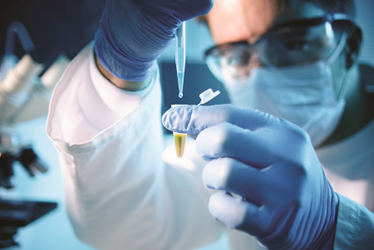PCR Diagnostic Kits & Freeze-Drying Considerations
By John Barley, Portfolio Manager, SP VirTis

Polymerase chain reaction (PCR) is a method widely used in molecular biology to make many copies of a specific DNA segment. PCR enables a small amount (as low as a single copy) of DNA of a particular target/test sample to be exponentially amplified to generate thousands to millions more copies of that particular DNA segment. A precursor reverse transcript process (RT-PCR) can also be added if the target sample is RNA. The RT process first converts the RNA to DNA, and then the PCR process follows with DNA amplification.
There are numerous processing challenges with the PCR method. The various component solutions need to be accurately combined in a plate well or tube “cocktail”. The components require refrigeration and they have a relatively short shelf life and cross contamination is a concern. R&D lab bench pipetting errors can also be troublesome.
Get unlimited access to:
Enter your credentials below to log in. Not yet a member of Pharmaceutical Online? Subscribe today.
